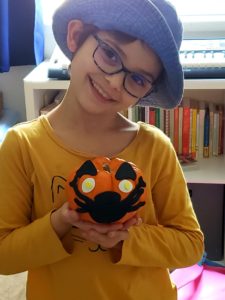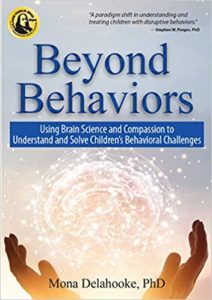It’s been a long time since I’ve written a post. My “baby” is now eight years old, and she inspired this post. I am sharing a recent conversation we had, with her permission, “because all adults should know…”
“Mom, is it weird that I still suck my thumb?”
“I don’t think so. It seems to comfort you. I notice you suck your thumb more when you are worried or tired. Do you think it’s weird?”
“No, but I don’t want to suck my thumb too much because it can push my front teeth out and then I might have to have braces and that would be no fun.”
“True, and I ask you to take your thumb out of your mouth sometimes because it’s hard for me to understand you when you’re talking with a thumb in your mouth. You know, if you wanted you could find other ways to comfort yourself.”
“Not yet. My thumb helps me a lot. When I suck my thumb, it usually means I am tired and need a rest or need to lie down.” (I think back to when she was a toddler, and she would suddenly lie down (no matter where we were) and rock her whole body when she was overloaded with sensory input.)
“It’s really good that you recognize that.”
Silence for a few minutes. Then…
“What are you thinking about?”
“I was thinking about when I was six and I was in my old school in Kindergarten. The rules were that you had to sit up in your chair. You couldn’t lie down, no matter what. (Her voice is rising, indicating stress.) And D. would never let me suck my thumb. A. sometimes let me because she knew I needed to. But that was really hard.” (We are going into our second year of homeschooling. I pulled her from the school after Spring break in her first year, because I realized over Spring break she was a completely different child and the multiple daily meltdowns she had been having reduced to almost none.)
“I didn’t know that was happening, sweetie. How come you didn’t tell me?”
“I didn’t know how to. That’s why I was always screaming. That’s why I like homeschool better. Because you let me rest and you don’t tell me I have to sit up and not suck my thumb when I am tired.”
“I am so sorry that happened and I didn’t know. Do you know you should have been able to take a break and even lie down if you needed to? That’s called an accomodation. There are laws…and that’s what I am teaching my college students about. It means that when a person has a disability, they should be able to do what they need to in order for them to be able to be included and learn well.”
“You mean like the grownups have to be flexible and listen to the kids and let them take breaks to rest and lie down if they need to?”
“Yes, exactly.”
“Mom?”
“Mmmm…”
“I think all grownups need to know this. Can you tell them?”
“I can try. Would it be Okay with you if I shared this conversation? That might help me tell them.”
“Yes! Tell them they should pay attention and believe kids and they should let kids rest if they need to. Kids aren’t trying to be bad.”
So, there you have it everyone. I am so proud of my daughter who has developed such keen self awareness and insight into her own needs and who is becoming a self advocate and an advocate for others.
I feel sad that she had the experience of NOT feeling seen, listened to, and accommodated at the private school I was scrambling to pay for in hopes of avoiding the behavioral approach the public school was proposing (“edibles” as reinforcement for following the rules and behaving “appropriately”).
All adults who teach children should understand that behaviors have meaning and that rules need to be flexible. Children with disabilities are entitled to accommodations that will allow them to be included and learn in classrooms with peers, and they should not have to suffer unduly by being made to conform to adult expectations when an accommodation can reasonably be made. These rights are protected by law.
For more, I highly recommend Mona Delahooke’s book, Beyond Behaviors: Using Brain Science and Compassion to Understand and Solve Children’s Behavioral Challenges.


